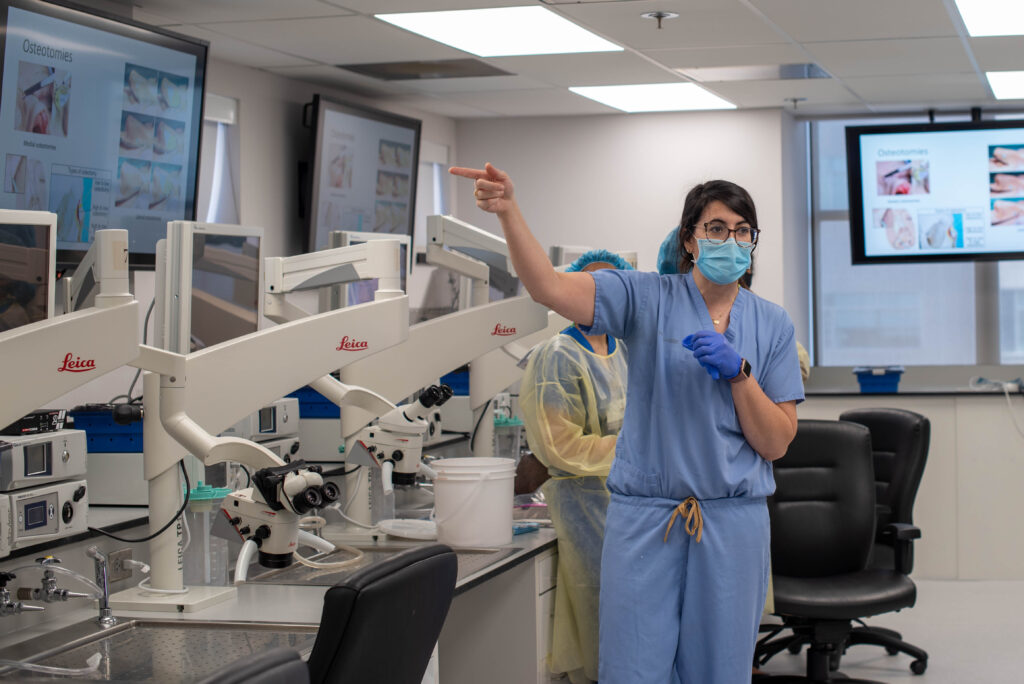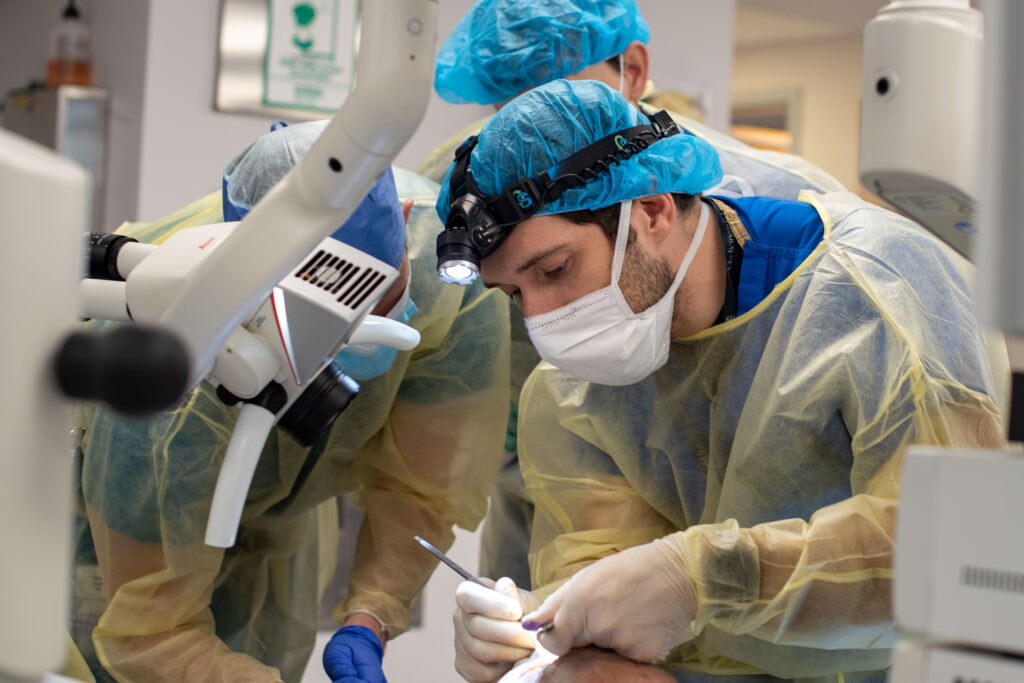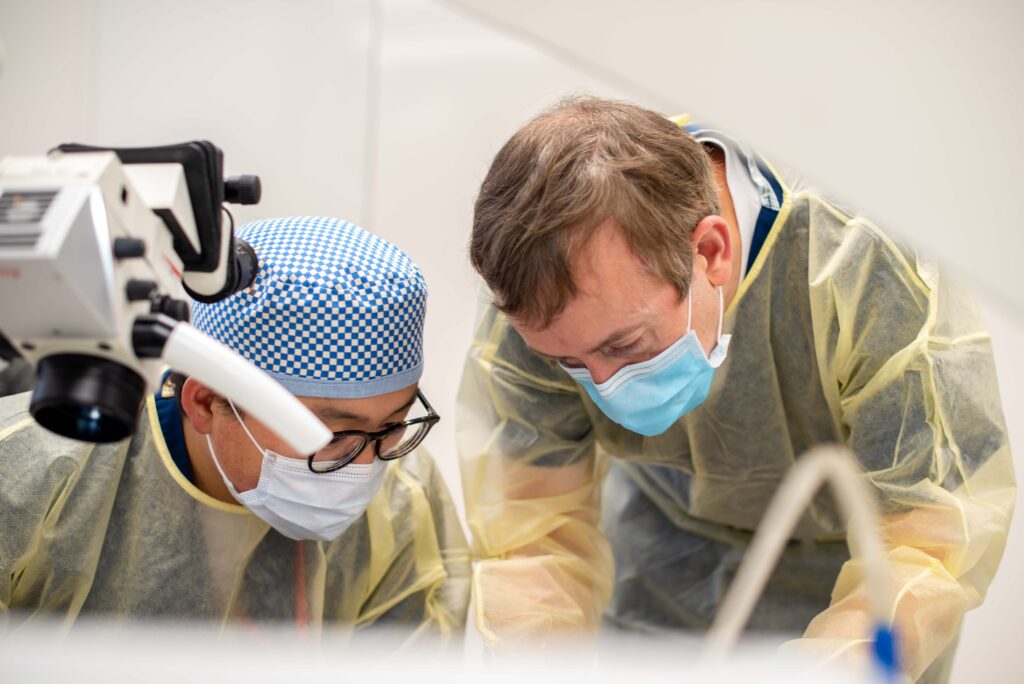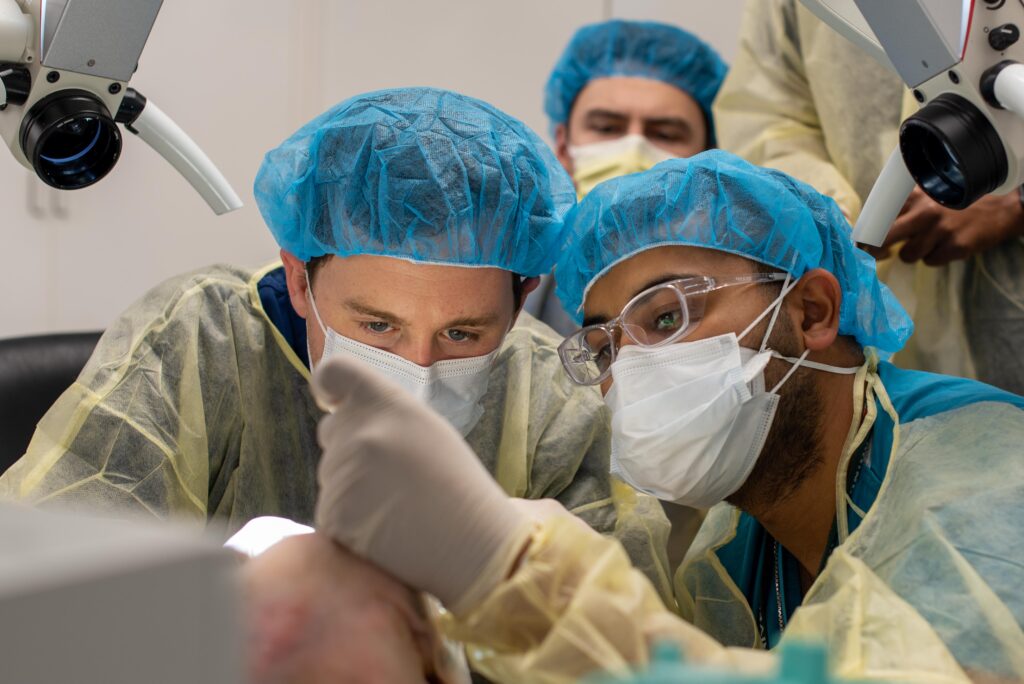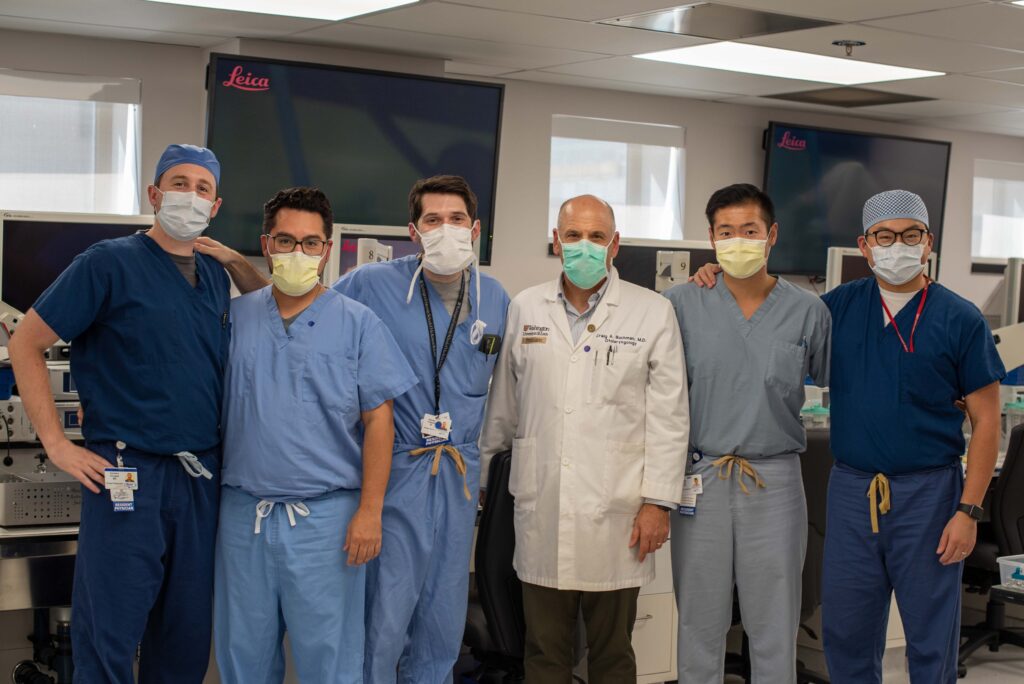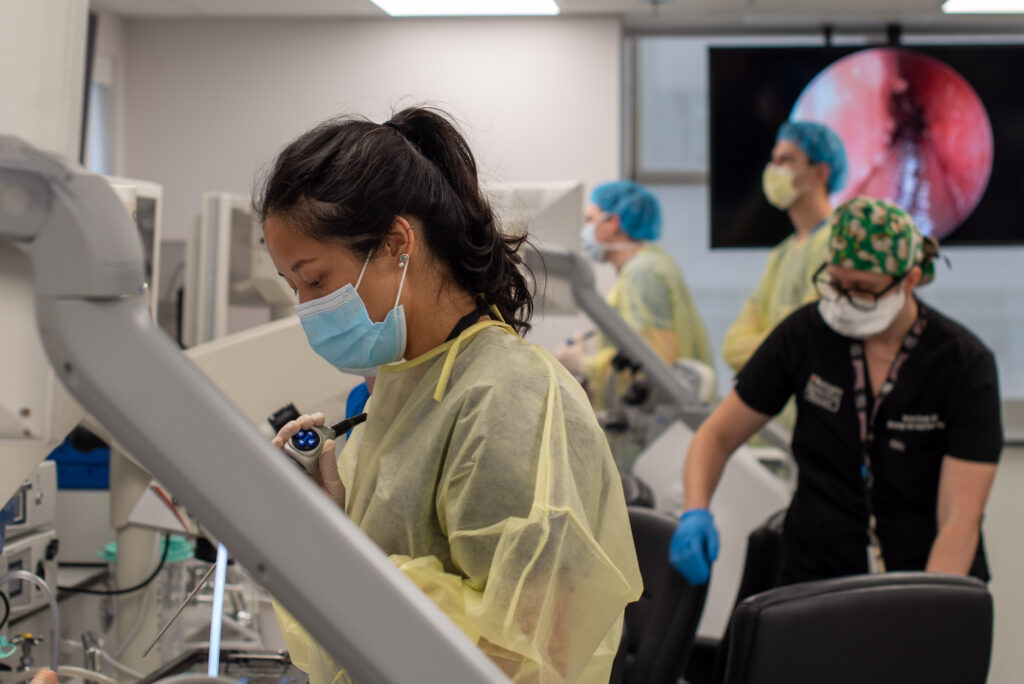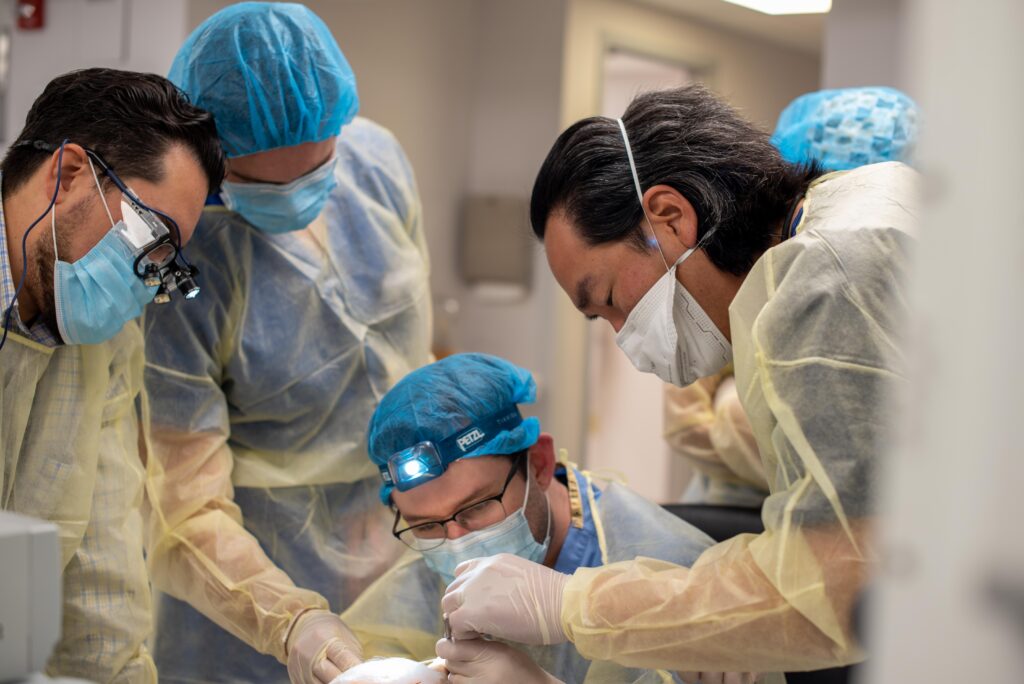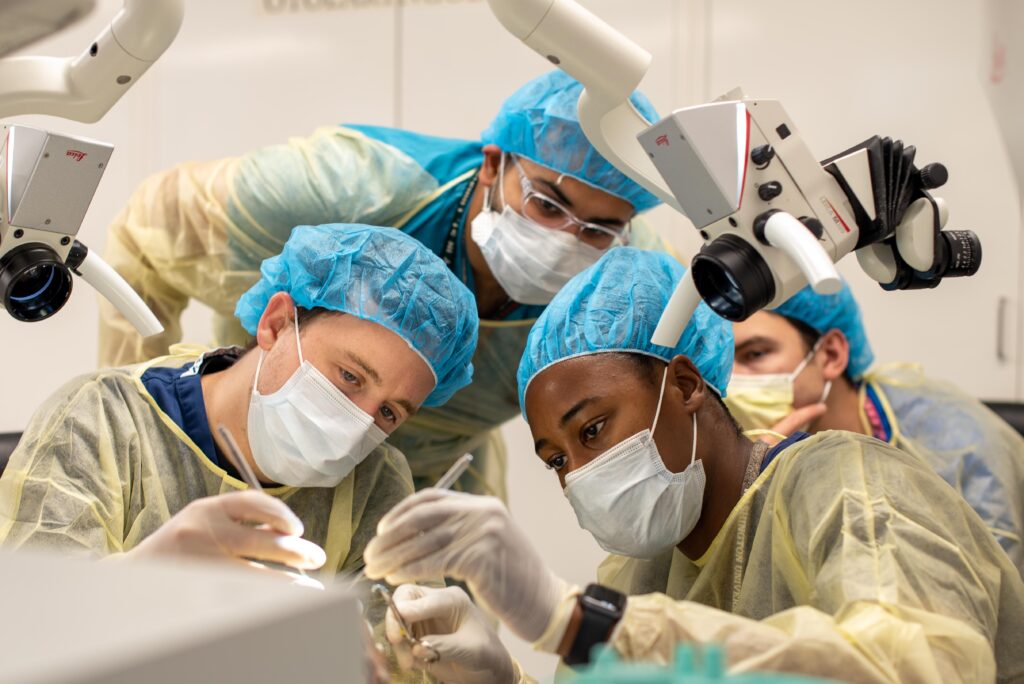One of the unique advantages of surgical training for residents in ophthalmology, neurosurgery and otolaryngology at Washington University in St. Louis is their multidisciplinary surgical simulation lab. The lab has become an increasingly beneficial tool for resident training as more and more surgical specialties adopt hands-on training in the lab as a routine part of their curriculum.
Otolaryngology residents have seen those advantages first hand in the past month through three specialized offerings to their training:
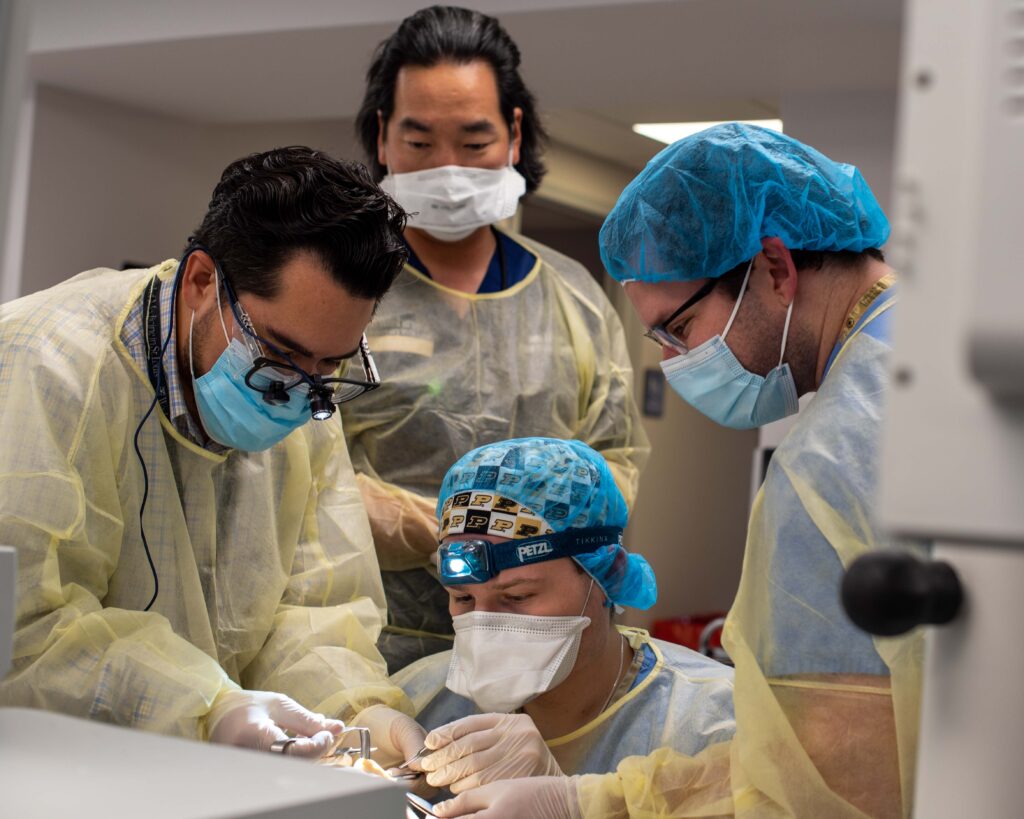
- Fourth-year residents completed a week-long temporal bone course, where they utilize temporal bone dissection for bone anchored hearing aids and cochlear implants, semicircular canal plugging and other procedures. This year, cadaveric specimens also allowed for an endoscopic approach to the middle ear dissections, led by Cameron Wick, MD.
- The facial plastics division utilized the lab for rhinoplasty training for surgery to correct the shape of the nose. Previously done in a lecture format, the lab allows this training to go hands on using cadaver specimens. Plastic surgeons Emily Spataro, MD, and John Chi, MD, MPHS, were present to guide residents through the procedure.
- The rhinology division also took full advantage of the lab to provide some hands-on experience with image-guided endoscopic surgical dissection. John Schneider, MD, Cristine Klatt-Cromwell, MD, and Nyssa Farrell, MD, helped provide residents with a broad exposure to image-guided endoscopic techniques. This was the first time image guidance systems had been used in the simulation lab.
One of the most unique benefits of the lab is the opportunity for multidisciplinary training. ENT surgeons often work side by side in the operating room with their neurosurgery and ophthalmology colleagues. The simulation lab can provide a risk-free introduction to this type of collaboration. In early December, for the first time ever, residents from all three departments will take part in a multidisciplinary course. They will assemble to learn recently developed techniques for transorbital (through the eye socket) neuroendoscopic surgery or TONES, a scarless form of neurosurgery. The course is being organized by neurosurgeon Michael Chicoine, MD, and will feature special guest Kris S. Moe, MD, one of the pioneers of this surgical approach.

